Setareh Ariafar
The Vizier Gaussian Process Bandit Algorithm
Aug 21, 2024Abstract:Google Vizier has performed millions of optimizations and accelerated numerous research and production systems at Google, demonstrating the success of Bayesian optimization as a large-scale service. Over multiple years, its algorithm has been improved considerably, through the collective experiences of numerous research efforts and user feedback. In this technical report, we discuss the implementation details and design choices of the current default algorithm provided by Open Source Vizier. Our experiments on standardized benchmarks reveal its robustness and versatility against well-established industry baselines on multiple practical modes.
Predicting the utility of search spaces for black-box optimization: a simple, budget-aware approach
Dec 16, 2021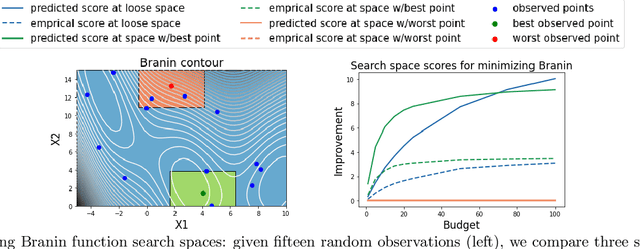
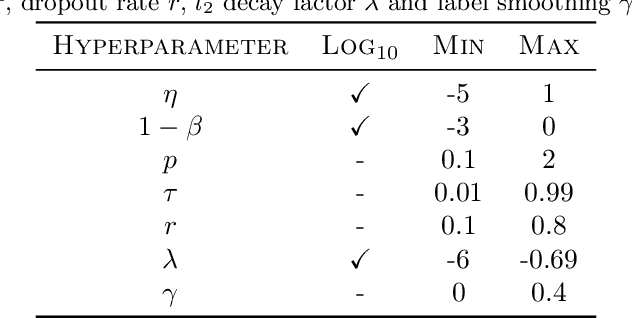
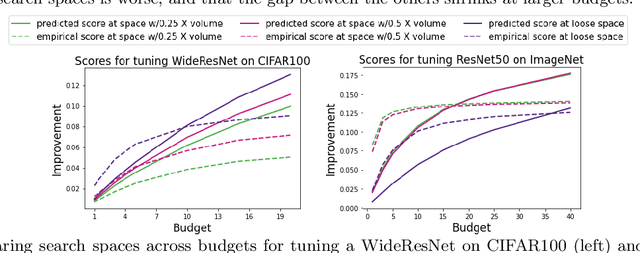
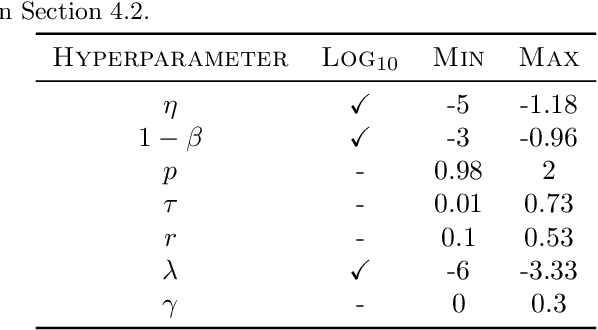
Abstract:Black box optimization requires specifying a search space to explore for solutions, e.g. a d-dimensional compact space, and this choice is critical for getting the best results at a reasonable budget. Unfortunately, determining a high quality search space can be challenging in many applications. For example, when tuning hyperparameters for machine learning pipelines on a new problem given a limited budget, one must strike a balance between excluding potentially promising regions and keeping the search space small enough to be tractable. The goal of this work is to motivate -- through example applications in tuning deep neural networks -- the problem of predicting the quality of search spaces conditioned on budgets, as well as to provide a simple scoring method based on a utility function applied to a probabilistic response surface model, similar to Bayesian optimization. We show that the method we present can compute meaningful budget-conditional scores in a variety of situations. We also provide experimental evidence that accurate scores can be useful in constructing and pruning search spaces. Ultimately, we believe scoring search spaces should become standard practice in the experimental workflow for deep learning.
Weighting Is Worth the Wait: Bayesian Optimization with Importance Sampling
Feb 23, 2020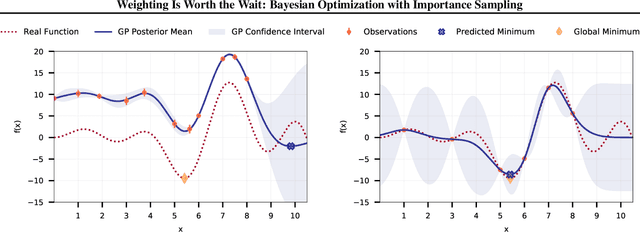

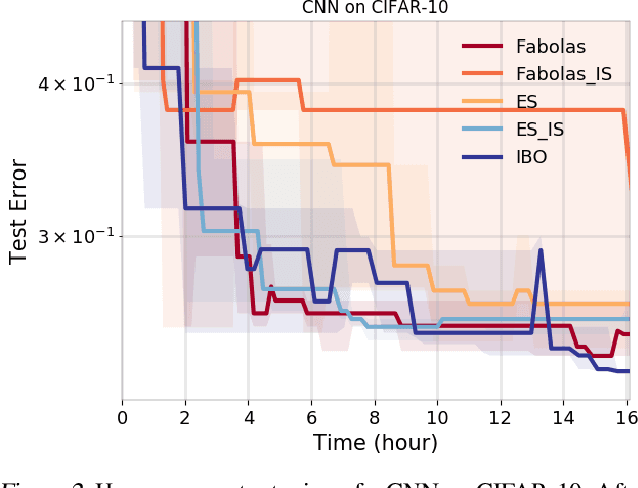
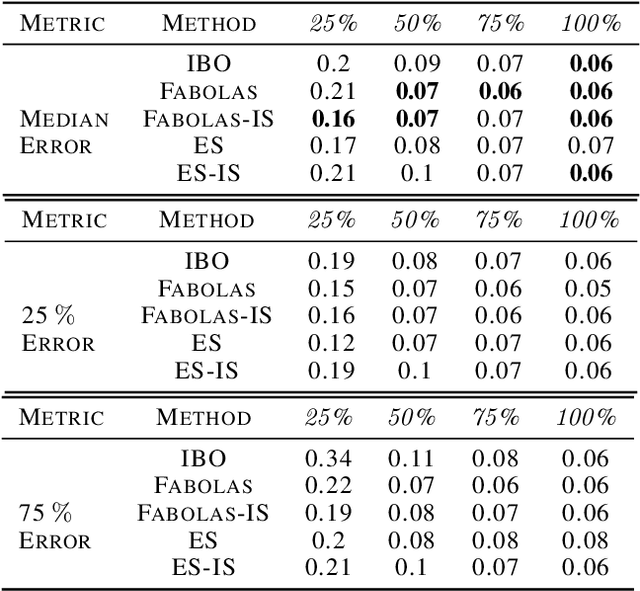
Abstract:Many contemporary machine learning models require extensive tuning of hyperparameters to perform well. A variety of methods, such as Bayesian optimization, have been developed to automate and expedite this process. However, tuning remains extremely costly as it typically requires repeatedly fully training models. We propose to accelerate the Bayesian optimization approach to hyperparameter tuning for neural networks by taking into account the relative amount of information contributed by each training example. To do so, we leverage importance sampling (IS); this significantly increases the quality of the black-box function evaluations, but also their runtime, and so must be done carefully. Casting hyperparameter search as a multi-task Bayesian optimization problem over both hyperparameters and importance sampling design achieves the best of both worlds: by learning a parameterization of IS that trades-off evaluation complexity and quality, we improve upon Bayesian optimization state-of-the-art runtime and final validation error across a variety of datasets and complex neural architectures.
 Add to Chrome
Add to Chrome Add to Firefox
Add to Firefox Add to Edge
Add to Edge